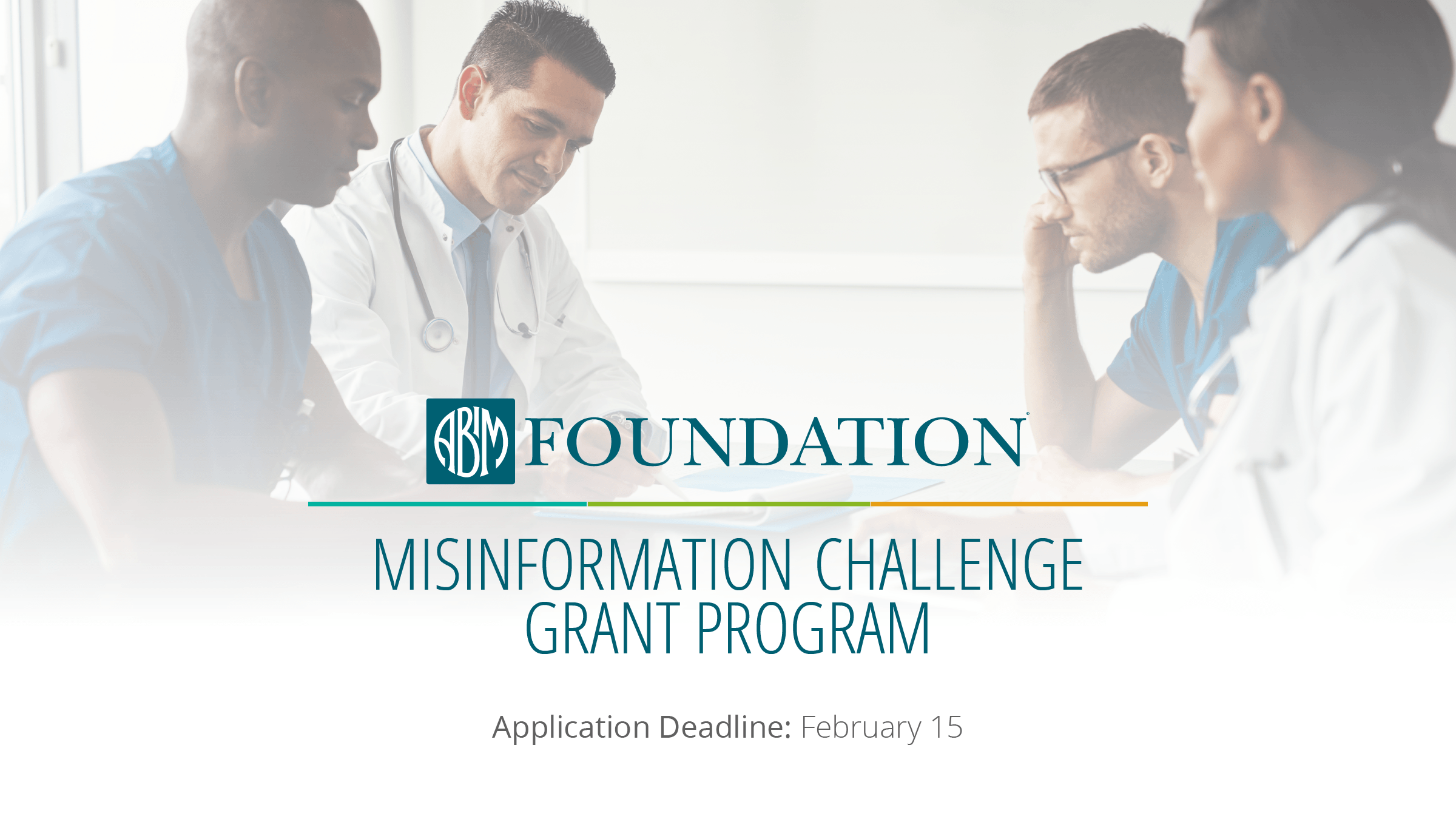Growing the field of trust research with AcademyHealth
In May, the ABIM Foundation and AcademyHealth convened 75 researchers, clinicians, patients and funders to chart the course of research on trust and health care for the next several years. The meeting, which also kicked off AcademyHealth’s new research community on trust and health care, covered a scan of existing research and identified areas where more is needed. Through guided conversation, participants discussed opportunities and methods to broaden and deepen the field of trust research.
Jodyn Platt, PhD from the University of Michigan and Lauren Taylor, PhD from the Hasting Center grounded the conversation with an overview of their literature review and their initial findings. The scan included looking at research on patient trust in clinicians, clinician trust in other clinicians, patient and clinician trust in organizations and patient and clinician trust in the system. In addition, the review paid particular attention to health equity, confidence in science and building and repairing trust.
Participants went on to have a rich conversation about potential areas of research, and voted on the top 10 areas to explore moving forward:
Advancing Trust at the Organizational Level
- How can trust be defined and measured at an organizational level (e.g., between patients and organization, community and organization, employees and organization, and clinicians and organization)?
- What can organizations do to address influential structural determinants of distrust, such as partisanship and politicization, structural racism, and systems of privilege in order to improve trust with patients and within their systems?
- Perform an analysis of positive deviance to identify fundamental drivers of optimal trust within organizations with diverse populations, studying signals at different levels (e.g., patient-clinician, system-clinician, and system-community).
- What are the policies, partnerships, and practices that constitute the trustworthiness of organizations?
- What is the impact of new organizations in new communities? Mergers? Workforce-community concordance? Patient-clinician concordance? A pipeline of trainees?
- When organizational policies and values prevent clinicians from providing the care they think they should provide, how does that affect their trust in organizations?
- What are the downstream effects of the loss of organizational trust on patient and clinician outcomes?
Advancing Trust at the Clinician Level
- Why is trust in nurses consistently high vs. less consistent trust estimates in physicians—why the disparate scores and consistency? (correlate: why is trust in nurses more global and trust in physicians more personal?)
- One of the drivers of patient trust is the perception that their doctor cares about them. How does a clinician convey that they care about a patient? What are the things they do or don’t do?
- What are the behaviors, language, attributes?
- What makes patients trust their clinician or health care organization more, and what would diminish or threaten that trust?
- What underlies trust? Where is the locus of trust, mistrust, confidence?
- What is the level of trust clinicians have in patients and their caregivers, and what interventions might most meaningfully increase that trust?
Advancing Trust at the Patient and Community Level
- What are longitudinal trends in trust at the population level, and what factors affect change in trust?
- What are the frames (e.g., patients, communities, institutions, or policies) for advancing trust that would have the biggest impact on health equity?
- How can we center the community and their needs?
Additionally, participants discussed the importance of the study setting, populations of focus, measurement, methods, potential partners, and possible interventions and outcomes applicable to the research topic.
AcademyHealth and the ABIM Foundation plan to build on these topics by fostering a community built around research on trust and advocate for these issues to receive attention and funding. To learn more or join the community, contact Kelly Rand at krand@abim.org.


